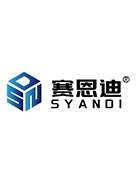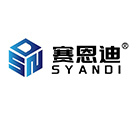
Understanding Urethane Limit Blocks: Enhancing Precision in Machine Tool Applications
项目类型:
应用区域:
使用产品:
安装型号:
Urethane limit blocks are precision-engineered components made from a synthetic polymer known for its durability, flexibility, and resistance to wear and tear. These blocks are primarily used to set physical limits on machine movement, ensuring that components do not exceed predefined travel distances. This function is critical in maintaining the accuracy and safety of machine tool operations.
One of the key benefits of urethane limit blocks is their ability to absorb shock and vibration. This characteristic makes them ideal for use in high-speed machining environments, where sudden movements can lead to equipment damage or inaccuracies in the machining process. By incorporating urethane limit blocks, manufacturers can enhance the longevity of their machinery while ensuring consistent performance.
Another advantage of urethane limit blocks is their chemical resistance. Unlike traditional rubber components, urethane is less susceptible to degradation from exposure to oils, solvents, and other industrial chemicals. This property is particularly beneficial in machining environments where such substances are prevalent. By utilizing urethane limit blocks, companies can maintain operational efficiency without the frequent need for replacements due to wear.
In addition to their resilience and longevity, urethane limit blocks offer versatility in design. They can be manufactured in various sizes and shapes to accommodate specific machine tool requirements. This customization allows manufacturers to optimize their setups, leading to improved precision and operational effectiveness.
The integration of urethane limit blocks into machine tools can significantly enhance operational safety. By clearly defining movement limits, these blocks help prevent accidents and damage to both the machinery and the workpiece. This safety feature is crucial in a manufacturing environment, where the risk of injury can be high without proper precautions.
Moreover, the use of urethane limit blocks can lead to substantial cost savings over time. Their durability means reduced downtime for maintenance and fewer replacements, allowing manufacturers to focus on productivity and efficiency. In a competitive market, minimizing operational costs while maximizing precision is critical for success.
In conclusion, urethane limit blocks play a vital role in the manufacturing and machining industry, particularly in machine tools and accessories. Their unique properties, such as shock absorption, chemical resistance, and design versatility, make them indispensable for enhancing machine precision, safety, and longevity. As professionals in the field explore innovative solutions, urethane limit blocks should be considered as essential components for modern machining practices.
One of the key benefits of urethane limit blocks is their ability to absorb shock and vibration. This characteristic makes them ideal for use in high-speed machining environments, where sudden movements can lead to equipment damage or inaccuracies in the machining process. By incorporating urethane limit blocks, manufacturers can enhance the longevity of their machinery while ensuring consistent performance.
Another advantage of urethane limit blocks is their chemical resistance. Unlike traditional rubber components, urethane is less susceptible to degradation from exposure to oils, solvents, and other industrial chemicals. This property is particularly beneficial in machining environments where such substances are prevalent. By utilizing urethane limit blocks, companies can maintain operational efficiency without the frequent need for replacements due to wear.
In addition to their resilience and longevity, urethane limit blocks offer versatility in design. They can be manufactured in various sizes and shapes to accommodate specific machine tool requirements. This customization allows manufacturers to optimize their setups, leading to improved precision and operational effectiveness.
The integration of urethane limit blocks into machine tools can significantly enhance operational safety. By clearly defining movement limits, these blocks help prevent accidents and damage to both the machinery and the workpiece. This safety feature is crucial in a manufacturing environment, where the risk of injury can be high without proper precautions.
Moreover, the use of urethane limit blocks can lead to substantial cost savings over time. Their durability means reduced downtime for maintenance and fewer replacements, allowing manufacturers to focus on productivity and efficiency. In a competitive market, minimizing operational costs while maximizing precision is critical for success.
In conclusion, urethane limit blocks play a vital role in the manufacturing and machining industry, particularly in machine tools and accessories. Their unique properties, such as shock absorption, chemical resistance, and design versatility, make them indispensable for enhancing machine precision, safety, and longevity. As professionals in the field explore innovative solutions, urethane limit blocks should be considered as essential components for modern machining practices.
Summary:
Urethane limit blocks are precision-engineered components made from a synthetic polymer known for its durability, flexibility, and resistance to wear and tear. These blocks are primarily used to set physical limits on machine movement, ensuring that components do not exceed predefined travel distances. This function is critical in maintaining the accuracy and safety of machine tool operations. One
Author:
Source:
Date:
2025-06-25
Other information





